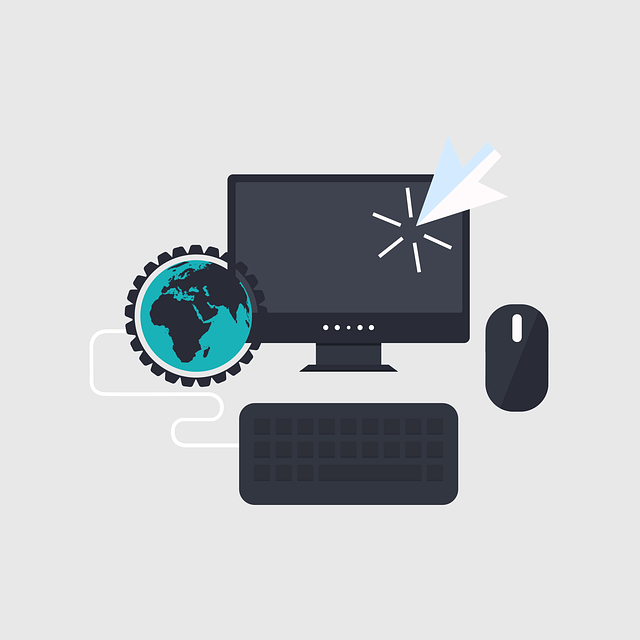AI consulting is transforming vehicle repair services by automating manual tasks, improving diagnostic accuracy, and optimizing inventory management. This technology leverages machine learning algorithms, predictive analytics, and natural language processing to enhance operational efficiency, reduce costs, and prevent equipment downtime. Repair shops can integrate AI through a structured process that starts with assessing current operations, setting specific goals, and implementing AI solutions tailored to their needs. Adopting AI allows businesses to move from reactive to preventive care, ultimately driving faster, more accurate services and increased customer satisfaction in the competitive automotive industry.
“Revolutionize your vehicle repair services with the power of AI consulting. In today’s digital age, artificial intelligence offers unprecedented opportunities for operational improvement in repair shops. This article guides you through the transformative journey, from understanding the potential of AI to implementing effective strategies and exploring real-world case studies. Discover how AI enhances efficiency and accuracy, streamlining processes and delivering superior customer experiences. Embrace the future of automotive maintenance with our comprehensive insights.”
- Understanding the Potential of AI in Vehicle Repair: Unlocking Efficiency and Accuracy
- Implementing AI Strategies: A Step-by-Step Guide for Repair Shops
- Case Studies: Real-World Success Stories of AI Consulting in Action
Understanding the Potential of AI in Vehicle Repair: Unlocking Efficiency and Accuracy

The potential of Artificial Intelligence (AI) in vehicle repair services is transforming the way repair shops operate, offering unprecedented efficiency and accuracy gains. AI consulting for operational improvement in repair shops involves leveraging machine learning algorithms to streamline processes that were once manual and time-consuming. By analyzing vast amounts of data from past repairs, diagnostics, and part replacements, AI systems can provide predictive insights, suggest optimal solutions, and even predict potential vehicle issues before they occur.
This technology enhances diagnostic accuracy by assisting technicians with real-time recommendations based on complex algorithms studying vehicle patterns and historical repair records. Moreover, AI streamlines inventory management, ensuring that parts are readily available when needed, reducing delays, and optimizing costs. Through these means, AI consulting empowers repair shops to deliver high-quality services faster, improve customer satisfaction, and remain competitive in a rapidly evolving automotive landscape.
Implementing AI Strategies: A Step-by-Step Guide for Repair Shops

Implementing AI Strategies: A Step-by-Step Guide for Repair Shops
1. Assess Current Operations: Begin by evaluating the current state of your repair shop’s operations. Identify pain points, inefficiencies, and areas where technology could bring significant improvements. This involves understanding workflow processes, equipment capabilities, and staff roles.
2. Define Operational Improvement Goals: Based on your assessment, set clear and achievable goals for AI implementation. These might include streamlining diagnostic processes, optimizing part inventory management, enhancing customer service through automated communication, or improving overall shop productivity. Having defined goals will guide your AI consulting journey and help measure success later.
Case Studies: Real-World Success Stories of AI Consulting in Action

AI consulting has proven its mettle in transforming vehicle repair services, driving operational improvements across the board. Real-world case studies showcase how AI technologies are streamlining processes that were once manual and time-consuming. For instance, predictive analytics powered by AI algorithms can anticipate equipment failures, minimizing downtime and maintenance costs for repair shops. This proactive approach to maintenance mirrors a shift from reactive to preventive care, mirroring successful strategies seen in manufacturing and healthcare sectors.
Another notable application involves natural language processing (NLP) for efficient parts identification. By understanding complex descriptions and cross-referencing with vast databases, AI systems can swiftly locate the right parts, reducing errors and expediting repair times. Such innovations are not merely about efficiency; they enhance customer satisfaction by offering faster, more accurate services. These case studies underscore the significant role AI consulting plays in modernizing repair shops and driving them towards greater operational excellence.
AI consulting is transforming vehicle repair services, offering significant potential for efficiency and accuracy. By implementing AI strategies, repair shops can streamline operations, reduce costs, and enhance customer satisfaction. The case studies presented demonstrate the tangible benefits of AI consulting, highlighting its role as a powerful tool for operational improvement in repair shops. Embracing AI is no longer an option but a necessity for staying competitive in today’s automotive industry.
